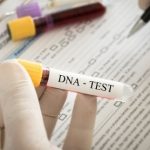The ACLU is challenging a California law that requires police to collect the DNA of all suspected felons. Michael Risher an American Civil Liberties Union lawyer told the Ninth U.S. Circuit Court of Appeals in San Francisco court Tuesday that the government should not be allowed to take the “genetic blueprint” of someone who hasn’t been convicted of a crime. One-third of the 300,000 Californians arrested on felony charges each year are never convicted. This does not stop the police from talking a DNA sample.
Risher said the voter-approved law allowing DNA testing after all felony arrests sacrifices privacy in exchange for questionable gains in identifying criminals. The three-judge panel questioned whether DNA sampling is a major invasion of privacy. They did, however, indicated that the California law may be vulnerable because of a year-old ruling in another case. The case in question was decided by the federal appeals court in June 2009 ruling in a case from Las Vegas. In that case 2-1 decision said police violated the constitutional ban on unreasonable searches when they extracted DNA from a man who was under arrest – but was not suspected of any other crimes – so they could enter it into a criminal database.
Judge Milan Smith said DNA testing, taken with a swab from the inner cheek, is no more intrusive than fingerprinting and is “a really good way of identifying people.” He said Risher was asking government officials to be “Luddites (who) can’t use modern technology.”
If the California case is similar, “our hands are tied” and the court must overturn the law, Smith told Deputy Attorney General Daniel Powell, the state’s lawyer. Smith said the state would have to ask the full 27-judge court to order a new hearing before a larger panel, which would have the authority to overturn the Nevada ruling.
Powell argued that the current case is different because California has a law that authorizes post-arrest DNA testing and Nevada does not. He also said the California law protects privacy by making it a crime to release DNA information to anyone but a law enforcement officer.
In a news conference before Tuesday’s hearing, Attorney General Jerry Brown proclaimed the benefits of DNA evidence as “the fingerprint of the 21st century” and a powerful crime-fighting weapon. “This is no more a violation of privacy than you have when you give up your fingerprints,” he said.
The opinions in this article are not necessarily those of DNA Identifiers, the Blog Owners or Authors.




